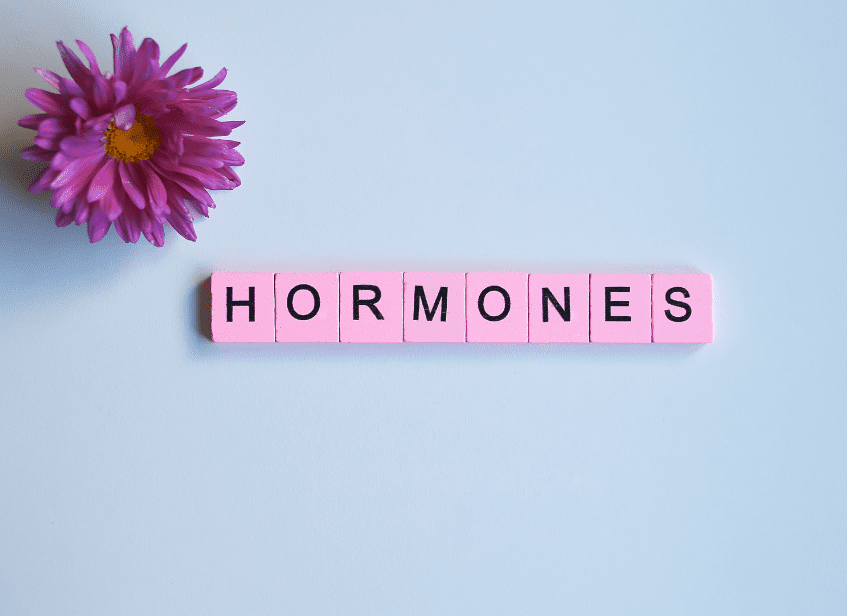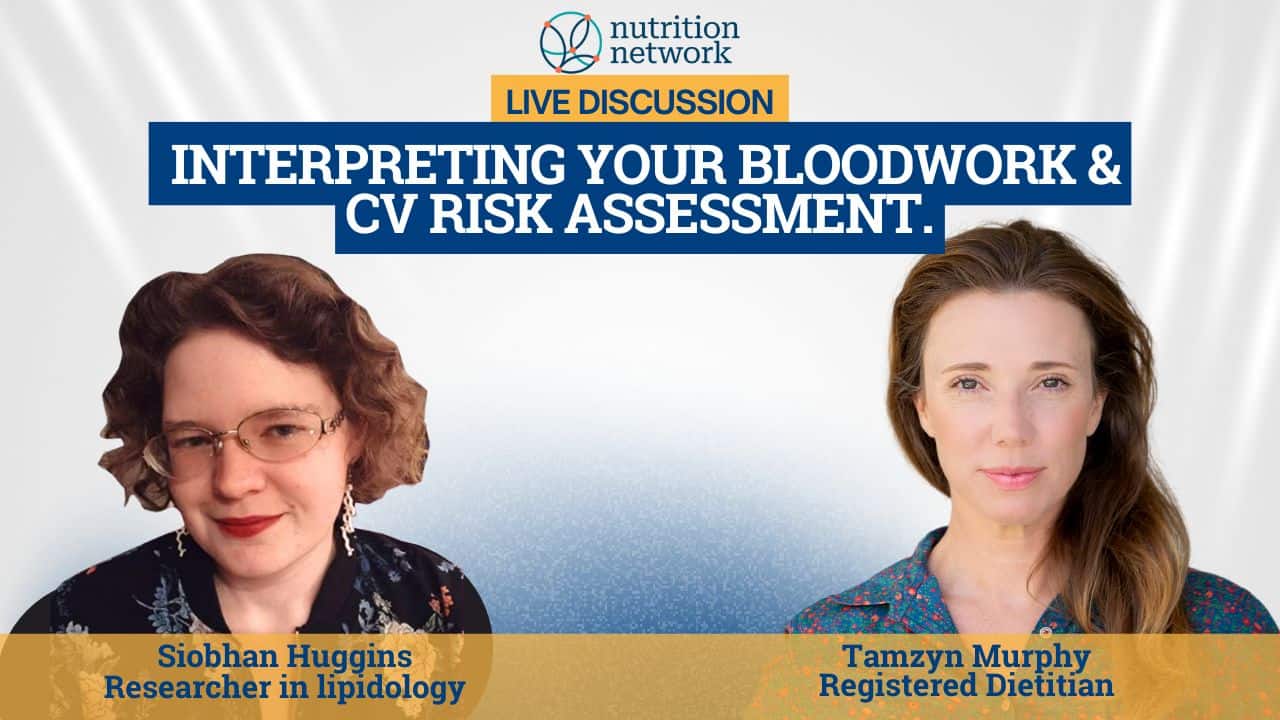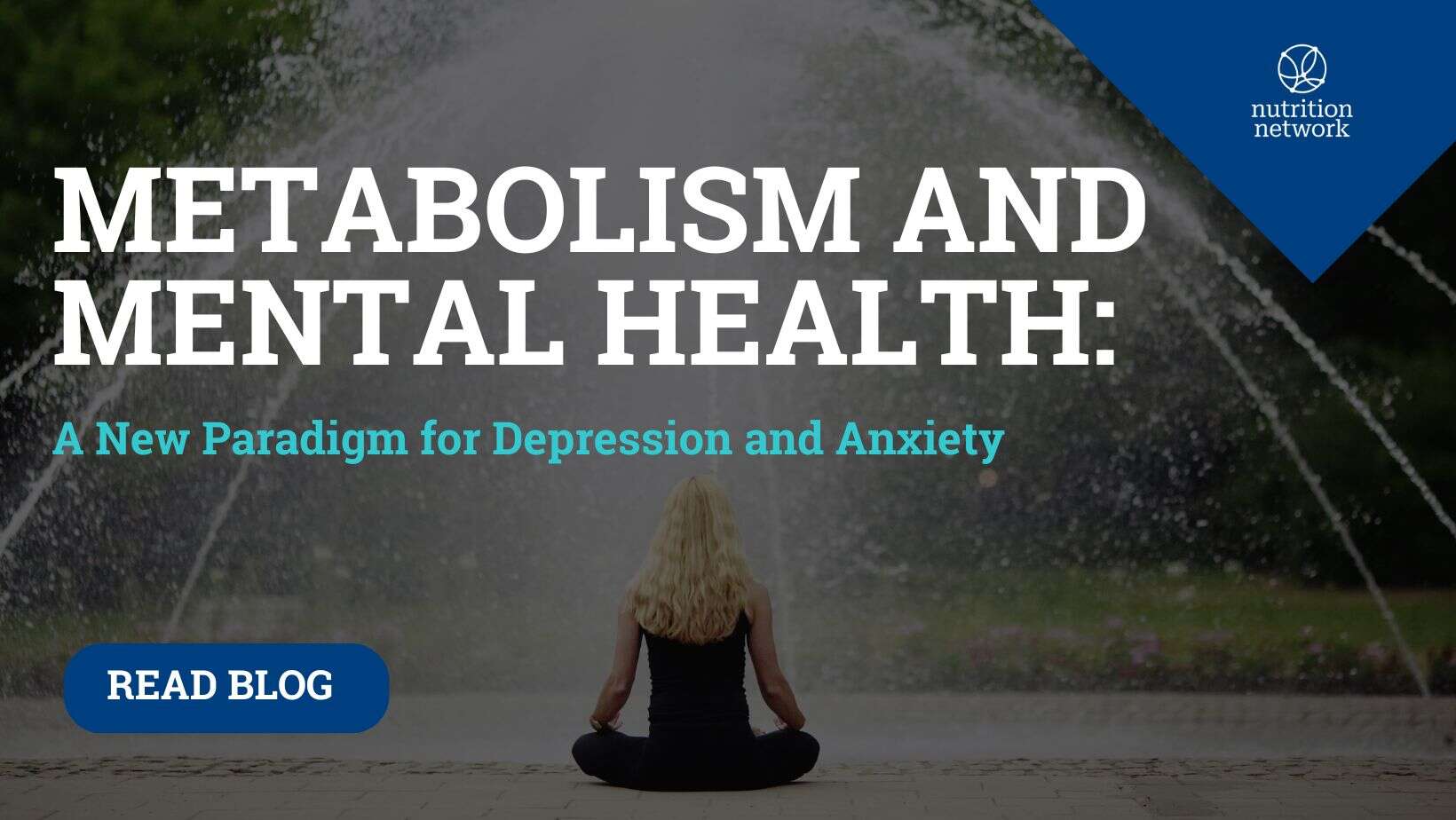What you eat matters when it comes to hormone health.
Healthy hormones are directly linked to happiness. Your plate does make a difference in how robust your hormone health is. You can literally feed your hormones to start feeling like yourself again. Here’s what to do for happy, healthy, balanced hormones.
Quick FYI on Hormones
Hormones are chemicals that flow through the body. They’re the silent conductors of your body’s orchestra, influencing everything from energy levels to mood, metabolism, sleep, and yes—your ability to lose or gain weight.
When your hormones are balanced, life feels steady and good. When they’re not, you might feel sluggish, moody, distracted, or stuck in a “I don’t know what to do to help myself” frustrating cycle. The good news? You have more control than you think—and it really does start with your plate.
How to Use Food to Improve Hormones
Food isn’t just fuel; it’s information to the body. Every bite you take sends a message to your body and to your hormones. The trick is to give the body what it needs so that it can create the hormones that it needs.
4 Balanced Hormone Food Principles:
1. Eat More Healthy Fats
Sex and stress hormones need healthy dietary fats, to be used as the backbone for the hormones—(estrogen, progesterone, and testosterone, cortisol). Omega-3s (found in fatty fish, chia seeds, walnuts) and monounsaturated fats (like olive oil, avocados, and almonds) support sex and stress hormone production.
Food Suggestion: A piece of wild salmon with avocado salsa for lunch, or a spoonful of almond butter with an apple.
2. Prioritize Protein
Protein helps balance blood sugar and triggers the release of hormones like insulin and glucagon that help regulate appetite and metabolism. It also supports the production of dopamine, the “feel-good” neurotransmitter.
We’ve talked all about protein many times. Note that along with build, repair, strength, metabolism, etc., protein impacts production of hormones which make us feel balanced and happy, which makes a good working machine.
Food Suggestion: Eggs with sautéed spinach, a protein smoothie with greens and flaxseed, or sauteed lentils with veggies and an olive oil drizzle.
3. Eat for Your Gut
Over 70 percent of your immune system and a large portion of your serotonin (your “happy” hormone) is made in your gut. Feed it well with fermented foods (like kimchi or kefir), prebiotics (like garlic, onions, and bananas), and fiber from vegetables and whole grains.
Food Suggestion: Eat a variety of colorful vegetables for fiber that feeds microbiome. Also, add sauerkraut to your salad or toss roasted veggies with quinoa and tahini. Add a dollop of plain greek yogurt to your dish for creamy goodness, if tolerated.
4. Manage Stress
Chronic stress results in too much cortisol hormone. It’s not just about feeling overwhelmed—it’s biochemical. When you’re constantly stressed, your body pumps out cortisol, your primary stress hormone. And when cortisol is always high, it throws off your sex hormones, thyroid hormones and insulin sensitivity. For that reason, cortisol is a fat promoter and tends to allow fat to accumulate. You can’t eliminate stress completely, but you can give your body tools to recover from it.
Suggestions:
- Step outside and walk for 10 minutes without your phone. This is my favorite. I try to take a walk everyday. It’s very centering.
- Finish drinking caffeine by 10 a.m. or switch one cup of coffee to green tea, golden milk or matcha.
- Lean on healthy fats when you get those common stress sugar cravings.
Hormones + Food: Digging Deeper
Since everyone needs something a little different, key into eating to support whichever grouping is most important for you. Here’s a rundown of big-hitter hormones and the foods that actually feed them.
Sex Hormones: Estrogen, Progesterone & Testosterone
Unbalanced sex hormones cause PMS, perimenopause + menopause symptoms.
Foods That Support:
- Healthy fats provide the raw material for hormone production. Eat avocados, olive oil, wild salmon, pastured eggs, nuts, seeds.
- Zinc supports testosterone and ovulation. Eat pumpkin seeds, oysters, chickpeas, beef.
- Vitamin B6 & magnesium help metabolize estrogen and support progesterone. Eat bananas, sunflower seeds, spinach, turkey, lentils.
- Cruciferous veggies help detox excess estrogen. Eat broccoli, cauliflower, kale, Brussels sprouts.
Thyroid Hormones: T3 & T4
Your thyroid governs your metabolism, which often goes sideways during stressful times and during perimenopause and menopause. Good thyroid health requires specific nutrients—especially iodine, selenium, and zinc.
Foods That Support:
- Iodine is required to produce thyroid hormones. Eat seaweed (nori, kelp), cod, eggs, iodized salt.
- Selenium converts T4 to active T3. Eat Brazil nuts, sardines, sunflower seeds, mushrooms.
- Zinc supports thyroid hormone synthesis. Eat shellfish, beef, legumes, tahini.
- Tyrosine is an amino acid building block for thyroid hormones. Eat chicken, turkey, almonds, avocados.
Stress Hormones: Cortisol & Adrenal Support
Chronic stress depletes your body of key nutrients and keeps your cortisol chronically elevated—which can lead to weight gain, sleep disruption, PMS, and inflammation (and lots more).
Foods That Support:
- Vitamin C is needed for adrenal function. Eat bell peppers, citrus, strawberries, kiwi.
- B Vitamins are crucial for smooth energy and nervous system health. Eat whole grains, leafy greens, eggs, legumes.
- Magnesium helps calm the nervous system. Eat dark chocolate, avocado, pumpkin seeds, spinach.
GLP-1: Glucagon-Like Peptide-1 (Satiety + Insulin Support Hormone)
GLP-1 helps you feel full, regulates blood sugar, and slows gastric emptying. It’s one of the key players behind the effectiveness of medications like Ozempic—but it can also be naturally boosted by food.
Foods That Support:
- Fermented foods support gut microbiome (key for GLP-1 production). Eat kimchi, sauerkraut, kefir, yogurt, miso.
- Prebiotic fibers feed gut bacteria that produce GLP-1. Garlic, leeks, onions, asparagus, green bananas.
- Protein-rich foods increase GLP-1 release. Eat eggs, Greek yogurt, cottage cheese, lentils, fish.
- Polyphenols help enhance gut hormone response. Eat berries, dark chocolate, green tea, olive oil.
One Big, Messy Potential Reason for Stubborn Weight Loss: Your Hormones are Out of Whack
If you’ve been trying, but your weight won’t budge, you’re not broken—you’re likely hormonally blocked. Hormone imbalance is a BIG reason for stubborn weight loss. Remember, with hormones, it’s about creating a body environment where your systems want to cooperate.
Take a good look at your current situation. Ask yourself which hormone might be out of whack. Eat for replenishment of THAT hormone. See if it makes a difference.
Start with one or two small shifts today: Add healthy fats, build your plate around protein and fiber, eat lots of veggies, take a mindful breath in the afternoon, or swap a stress-inducing workout for a walk in nature. The happier your hormones, the happier (and healthier) you’ll feel—physically, mentally, emotionally. This isn’t easy, it’s actually really hard, but we believe small changes add up.
Let us help you. Reach out today to connect with a holistic nutritionist. Book a complimentary consultation to see if Healthy Nest programs are right for you.









